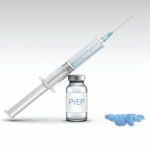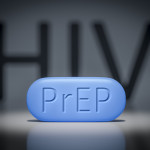By issuing new guidelines for the use of Truvada (emtricitabine/tenofovir) as pre-exposure prophylaxis (PrEP), the Centers for Disease Control and Prevention (CDC) threw its full support behind the new tool in the HIV prevention arsenal. The CDC states that when used daily as directed PrEP can lower the risk of HIV infection by more than 90 percent, and that poor adherence to the therapy significantly diminishes this effect.
The agency recommends Truvada for those at high risk of HIV, including: those in a relationship with an HIV-positive partner; men who don’t use condoms when having sex with men; men who have been diagnosed with a sexually transmitted infection in the past six months and who are not in a mutually monogamous relationship with an HIV-negative partner; heterosexuals who don’t always use condoms for sex with partners who are themselves at high risk for HIV; and anyone who, in the past six months, has shared equipment when injecting illicit drugs or who has been in an injection drug treatment program.
While the CDC’s move was largely met with jubilation by HIV prevention advocates, the AIDS Healthcare Foundation’s president Michael Weinstein, who had already notoriously dubbed Truvada a “party drug,” maintained his fervent opposition to PrEP. Calling the guidelines’ release “a shameful chapter in the history of the CDC,” he told The New York Times that he believed that PrEP would discourage condom use and ultimately lead HIV incidence rates to escalate.
Advertisement
Advertisement
Advertisement






Comments
Comments